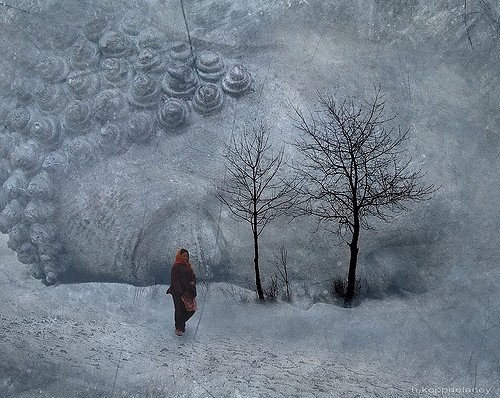The Problem Of Free Will

(Photo)
We perceive our free will as a fundamental inalienable artifact of human existence, and yet science has quite a different idea.
The Laplace Demon
I would like to start with an anecdote about the Laplace Demon, a hypothetical creature conjured by Pierre-Simon Laplace, the famous French scholar of natural science.
The Laplace Demon has a very special skill set:
- It knows the precise location and momentum, In every moment, of every atom in the known universe.
- It is an absolute expert in the laws of Newtonian mechanics, and can calculate any physical equation with infinite processing power.
Our brain consists of a vast ultra-complex neural network, and is a host of various electro-biochemical interactions.
It adheres to the same set of natural laws as everything else in the known universe, and is made down to its most basic elements, out of the same atoms as everything else.
We are all effectively star dust. Paraphrasing the famous physicist Lawrence Krauss –
the stars died so you could be born.
Here is where things get interesting - If we were to think about all of this as true (as we probably should), it would mean that our little demon friend can predict every decision we ever make, before we make it.
How does that fit with freedom of the will? well, it doesn’t.
Looking for freedom
If we were to look for free will, where would we begin?
Would we be looking for a ‘free will’ module in the brain, governed by an external natural force presently unknown?
but that would be looking for something superfluous, as the present forces of nature are enough to give us a good working model of neural activity, and we already know the sum total of causal influences on our brain cells at any given moment.
What it comes down to, is that free will seems to have no existence outside our subjective perception of reality, which as we all know can be quite misleading.
The biggest threat to the notion off free will, is probably the idea of determinism, as we know it from Newtonian mechanics.
Will quantum mechanics be able to help?
In quantum mechanics, the best we can do is calculate probabilities of events, but nothing more.
According to quantum mechanics, uncertainty is a basic feature of the inner workings of nature.
This doesn’t really solve anything, as we are left with at least the same lack of personal control, and we still find no room for free will.
Benjamin Libet’s experiment
Benjamin Libet was a famous cognitive and neuroscientist, who conducted a set of interesting experiments.
He connected subjects to an Electroencephalograph (EEG), which records electrical activity in the brain via electrodes connected to the scalp.
After doing so, subjects were requested to preform spontaneous basic actions, like moving a hand or pressing a button, and report the exact time when they have made the conscious decision to do so.
When Libet recorded the signals, he concluded that the brain activity behind the actions, has actually occurred before the time reported for making the decision to act.
It looks like our brain is making the decision for us, and only than let’s us in on it, making the process seem automatic and out of our control.
Although this experiment does not necessarily negate free will, it does offer an interesting perspective into some relevant underlying processes.
More about Free Will:
Free Will & The Person - Waking Life
[
Steven Pinker: On Free Will
[
Brian Greene - is free will real or illusory?
[
Sam Harris - Free will
[
yeap. Sam Harris pretty much nails it
A very interesting post!
I think that, as with anything, before we discuss something we must define it. In this case, we must define "free will". I like to define it as "The ability to make your own choices."
Do we have that ability? I would say yes.
Just because an omniscient being knows what choices you will make doesn't mean he makes them for you.
Is our perception of reality only subjective? I would argue that free will is an objective reality, since it can be readily observed in nature. We can see how different organisms, whether they be human or otherwise, can make their own choices and react with their environment. Humans have an added ability, the ability to reason and make choices based or not based on that reason.
Also, we have an area of the brain completely devoted to making choices. That seems to be a good indicator that we can make our own choices.
Regardless, I really enjoyed this post. Great job!
Thank you very much, appreciate it.